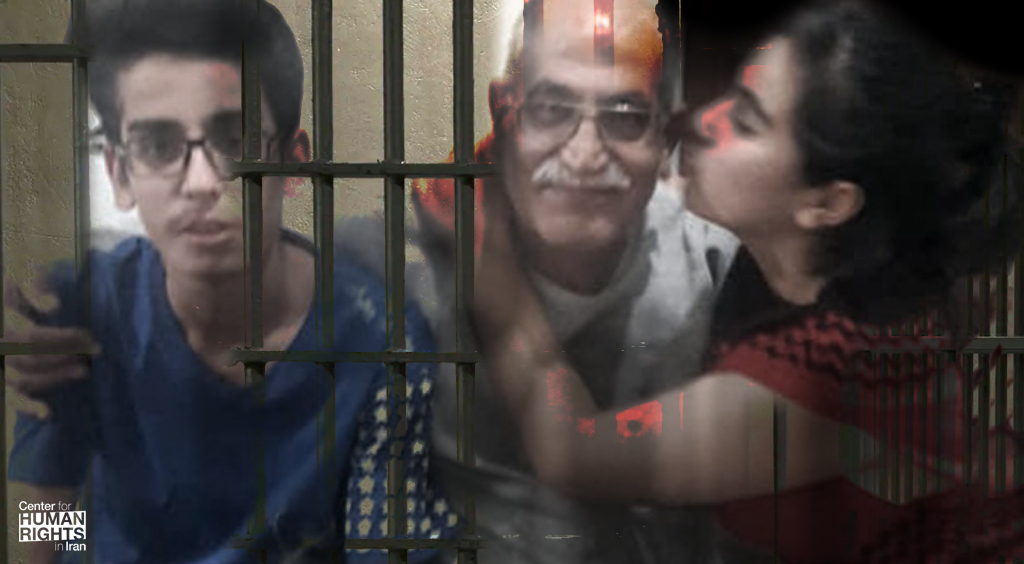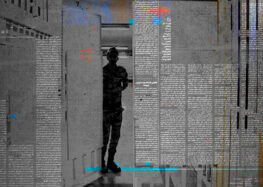Family Jailed in Iran for Seven Months on National Security Charges Could Face Death Penalty

Denied Access to Counsel and Held in Prolonged Solitary, Health Deteriorating
A family of three and a friend of the family jailed in Iran since November 2022 are facing charges that could carry the death penalty in a case shrouded in secrecy, the Center for Human Rights in Iran (CHRI) has learned.
Nasrollah Fallahi, 66, his son Ardavan, 24, and their family friend Parvin Mirasan have been held in Evin Prison in the capital of Tehran for the past seven months after a raid on the home of Parvin Mirasan in Isfahan at an unspecified date in early November 2022.
The next day, Fallahi’s daughter, Arghavan, 22, was arrested at her family’s home in Shiraz.
“Nasrollah Fallahi and his son Ardavan are in indefinite detention in Evin Prison’s Ward 4,” their lawyer Erfan Karam-Veisi told CHRI. “Arghavan is in the Women’s Ward.”
“I managed to have a meeting with them on one occasion after declaring my representation in their case, but unfortunately, I’ve not been given the chance for a second meeting or allowed to review the case files,” he added.
Mirasan is represented by a different lawyer which CHRI was unable to reach.
The exact reason the four were arrested has not been specified by the judiciary nor revealed to Karam-Veisi, who is struggling to provide counsel in a case involving charges that could be punished with the death penalty. However, national security charges are involved, which the Islamic Republic’s judiciary typically levels against political critics.
“The Fallahi family were read the charges at Branch 6 of the Evin Prison Prosecutor’s Office by the investigator, a Mr. Jabbarian (first name unknown),” a source with detailed knowledge of the case told CHRI on the condition of anonymity.
“The charges are ‘waging war,’ ‘corruption on earth through extensive acts against national security,’ and ‘assembly and collusion against national security,’” added the source. “However, the details are unclear as the case has not been reviewed by the lawyer.”
Denial of Medical Care
The source also told CHRI that the three are in deteriorating health, physically and mentally. It is unclear whether they have been allowed access to proper medical treatment.
“Ardavan is constantly going to the prison clinic or hospitals,” said the source. “Parvin Mirasan and Nasrollah Falahi had illnesses before they went to prison and now, due to lack of access to appropriate treatments, are in poor condition,” added the source.
Political prisoners in Iran are singled out for harsh treatment, which often includes denial of medical care. The threat of withheld medical care has also been used as an intimidation tool against prisoners who have challenged the authorities or filed complaints.
UN experts have repeatedly expressed serious concerns over Iran’s continuous denial of appropriate healthcare to detainees, despite repeated calls.
While being denied access to counsel, the Fallahi family has been transported from one intelligence agency to the next.
Shuttled Between Prisons and Wards Controlled by IRGC and Intelligence Ministry
They were initially taken to the Islamic Revolutionary Guard Corps’ (IRGC) detention center in Shiraz and after 25 days, transferred to the city’s Adelabad Prison and interrogated for 10 days.
Subsequently, the three were taken to the Intelligence Ministry’s office in a building known as “Plaque #100.” After two weeks of interrogation, they were transferred to Evin’s Ward 209 and a month later to Ward 2-A, under the control of the IRGC.
Nasrollah and his son Ardavan were transferred to the Evin Public Ward 4 and Arghavan to the Women’s Ward on March 20.
On April 11, Karam-Veisi wrote on Instagram that the Fallahis had been held in solitary confinement for more than two months.
Evin Prison’s Prosecutor’s Office initially objected to Karam-Veisi’s representation of the family, until finally approving it. However, judicial authorities have continued to conceal information about the case to Karam-Veisi, undermining his ability to provide effective legal defense.
The Iranian judiciary has a documented history of denying due process to individuals held in politically sensitive cases in various ways, including by forcing defendants to choose a lawyer from a list approved by the court, and by denying the defendant and his or her counsel enough time or information to prepare a proper defense.
Tens of thousands of people were detained in Iran between September 2022 and January 2023 during widespread anti-state protests, which came to be known as the “Woman Life Freedom” movement.
The vast majority were held without access to counsel and in locations unknown to their family members for months.
Many were ultimately released after being forced to sign “apology” statements, however, an unspecified number of people remain jailed while some high-profile political prisoners have since been summoned to court or sent back to prison.






